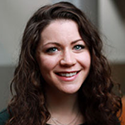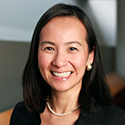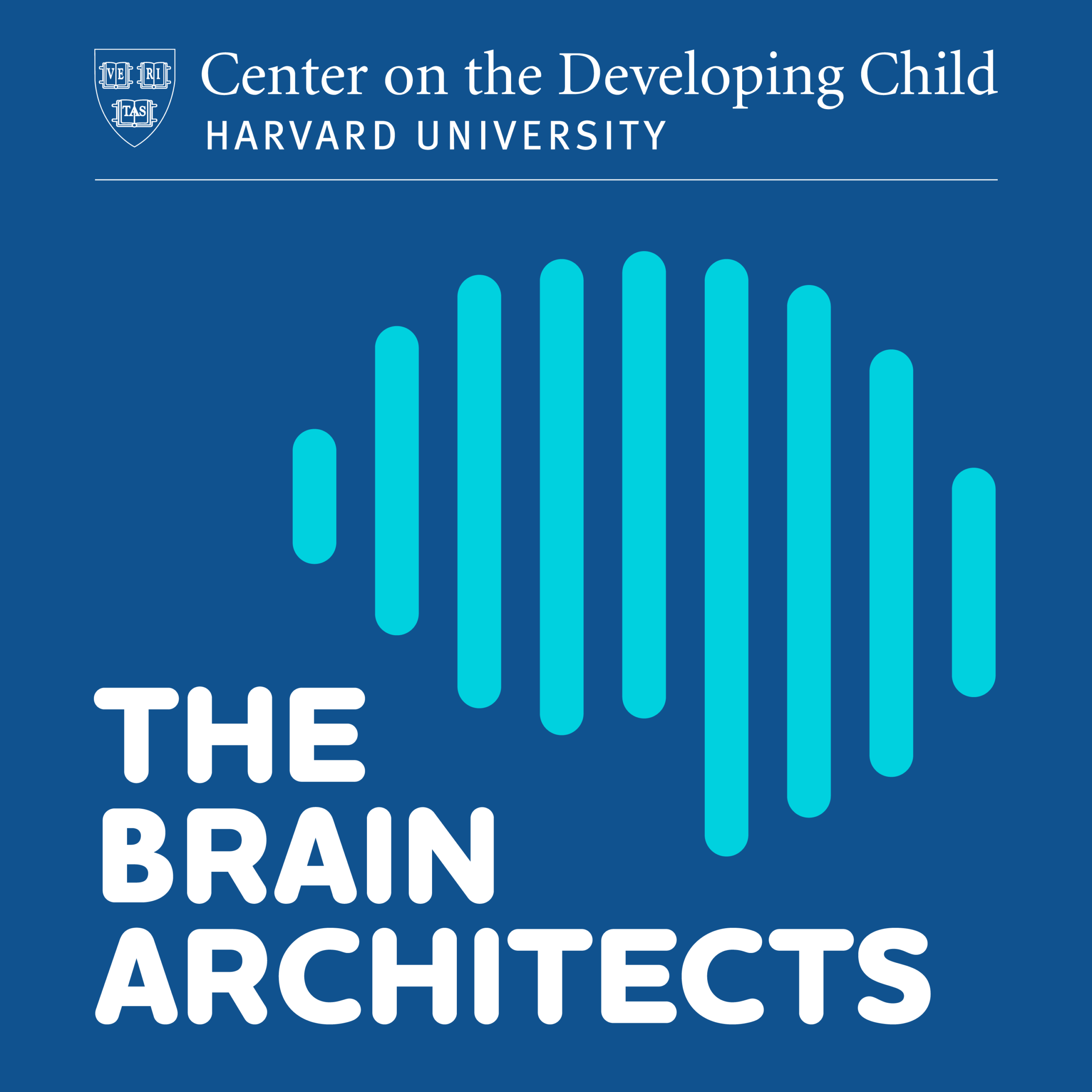COVID-19 Special Edition: Domestic Violence and Shelter-In-Place
Description
Shelter-in-place orders are meant to help protect our communities from the current coronavirus pandemic. But for some people, home isn’t always a safe place. For those who are experiencing domestic violence, or believe they know someone one who is, what options are available to stay both physically healthy and safe from violence?
In this fourth episode of our COVID-19 series of The Brain Architects, host Sally Pfitzer speaks with Dr. Tien Ung, Program Director for Impact and Learning at FUTURES without Violence. Prior to her work at FUTURES, Tien spent five years as the Director of Leadership and Programs at the Center on the Developing Child.
Tien discusses important, practical steps those at home can take to keep themselves and their children safe, as well as strategies others can use if they think someone they know may be experiencing domestic violence. She also addresses the resilience of survivors, and what our communities can do both during and after COVID to listen to and engage in real responsive relationships with adults and children alike.
The next episode of this special podcast series will focus on the mental health implications of a global pandemic. Subscribe below via your podcast platform of choice to receive it as soon as it’s released.
A note on this episode: If you or someone you know is experiencing domestic violence, you can contact the National Domestic Violence Hotline: 1-800-799-SAFE (7233) or the National Sexual Assault Hotline: 1-800-656-HOPE (4673).
Speakers
<figure id="attachment_4958" aria-describedby="caption-attachment-4958" style="width: 125px" class="wp-caption alignnone">
 <figcaption id="caption-attachment-4958" class="wp-caption-text">Sally Pfitzer, Podcast Host</figcaption></figure>
<figcaption id="caption-attachment-4958" class="wp-caption-text">Sally Pfitzer, Podcast Host</figcaption></figure><figure id="attachment_4959" aria-describedby="caption-attachment-4959" style="width: 125px" class="wp-caption alignnone">
 <figcaption id="caption-attachment-4959" class="wp-caption-text">Dr. Tien Ung, Program Director, Impact and Learning, FUTURES without Violence</figcaption></figure>
<figcaption id="caption-attachment-4959" class="wp-caption-text">Dr. Tien Ung, Program Director, Impact and Learning, FUTURES without Violence</figcaption></figure>Additional Resources
Hotlines
For a list of state/territory/tribal domestic violence coalitions, please visit:
https://ncadv.org/state-coalitions.
- Anti-Violence Project (LGBTQ) Hotline: 1-212-714-1141
- Casa de Esperanza: https://casadeesperanza.org/ — 1-651-772-1611
- ChildHelp National Child Abuse Hotline: https://www.childhelp.org/ — 1-800-4A CHILD (422-4453)
- Crisis Text Line: https://www.crisistextline.org/ — Text home to 741741
- Love Is Respect: https://www.loveisrespect.org/ — 1-866-331-9474
- National Domestic Violence Hotline: https://www.thehotline.org — 1-800-799-SAFE (7233)
- National Sexual Assault Hotline: https://www.rainn.org/ — 1-800-656-HOPE (4673)
- National Suicide Prevention Lifeline: https://suicidepreventionlifeline.org/ — 1-800-273-8255
- StrongHearts Native Helpline: https://www.strongheartshelpline.org/ — 1-844-7NATIVE (762-8483)
- The Northwest Network: https://www.nwnetwork.org/
- The Trevor Project: https://www.thetrevorproject.org/ — 1-866-488-7386
Tools and Guides
- “Caring Relationships, Healthy You” safety card: https://store.futureswithoutviolence.org/index.php/product/caring-relationships-lgbq-safety-card/
- Changing Minds – Preventing and healing childhood trauma: https://changingmindsnow.org
- Coaching Boys Into Men: https://www.coachescorner.org
- Educate Health Professionals on How to Respond to Domestic Violence: https://ipvhealth.org/health-professionals/educate-providers/
- “Hanging Out or Hooking Up” safety card: https://www.futureswithoutviolence.org/hanging-out-or-hooking-up-teen-safety-card/
- Promising Futures: Best Practices for Serving Children, Youth and Parents Experiencing Domestic Violence: http://promising.futureswithoutviolence.org
- Ways to help children and adults living with violence: https://www.futureswithoutviolence.org/wp-content/uploads/Futures_Resources-updated.pdf
Transcript
Sally: Welcome to The Brain Architects, a podcast from the Center on the Developing Child at Harvard University. I’m your host, Sally Pfitzer. Since our last podcast series was released, things have changed drastically as a result of the Coronavirus pandemic. During this unprecedented time, we’d like to share resources and provide guidance that you may find helpful. So, we are creating a series of podcast episodes that address COVID-19 and child development. A quick word about today’s episode: as you’ve probably guessed from the title, we’ll be discussing the subject of domestic violence, including mentions of sexual violence and abuse. We just want to give a heads up to those who may be sensitive to this subject matter so you can make an informed decision about whether this topic is right for you at this time. If you or someone you know may be experiencing domestic violence, you can contact the National Domestic Violence Hotline at 1-800-799-SAFE, that’s 1-800-799-7233, or the National Sexual Assault Hotline at 1-800-656-HOPE, that’s 1-800-656-4673. This podcast is the fourth in our series, and our guest today is Dr. Tien Ung, Program Director of Impact and Learning at FUTURES Without Violence. Prior to her work at FUTURES, Tien spent 5 years as the Director of Leadership and Programs here at the Center on the Developing Child. Thank you so much for being here with us today Tien, we’re really glad to have you.
Dr. Ung: Thank you, Sally. I’m glad to be back here to talk with you all about this.
Sally: Just so our listeners know, we’re recording this podcast today on a video call, so the sound quality may be different from what you’re used to hearing when we typically record this podcast in the studio. I’m going to start us with this first question. Tien, what are you seeing and hearing from your local partners, law enforcement, and families about indicators of domestic violence since stay at home orders started?
Dr. Ung: Sheltering in place does present very unique circumstances and challenges for people who are not safe at home. We know for example, that 1 in 4 women experience violence by an intimate partner in their lifetime. We know that 2 out of 3 children are exposed to trauma and violence. We know recently from the Rape, Assault & Incest National Network that for the first time in 25 years, their national hotline is receiving calls from minors, such that more than half of their calls coming in over the last couple of months have been from minors. We also know that at this time, reports of abuse and neglects against children are dropping. We know at least in Massachusetts, and I suspect in other states across the U.S. as well, that 80% of reports that come in from mandated reporters about child abuse and neglect are coming in from health professionals, educators, first responders, people who do not have eyes and ears on what’s happening behind closed doors at home right now. We also know very recently that phone calls to police stations across the nation are rising in response to domestic disputes. I think in fact, just today, we learned that a mass shooting in Canada had roots in domestic violence, which hi





